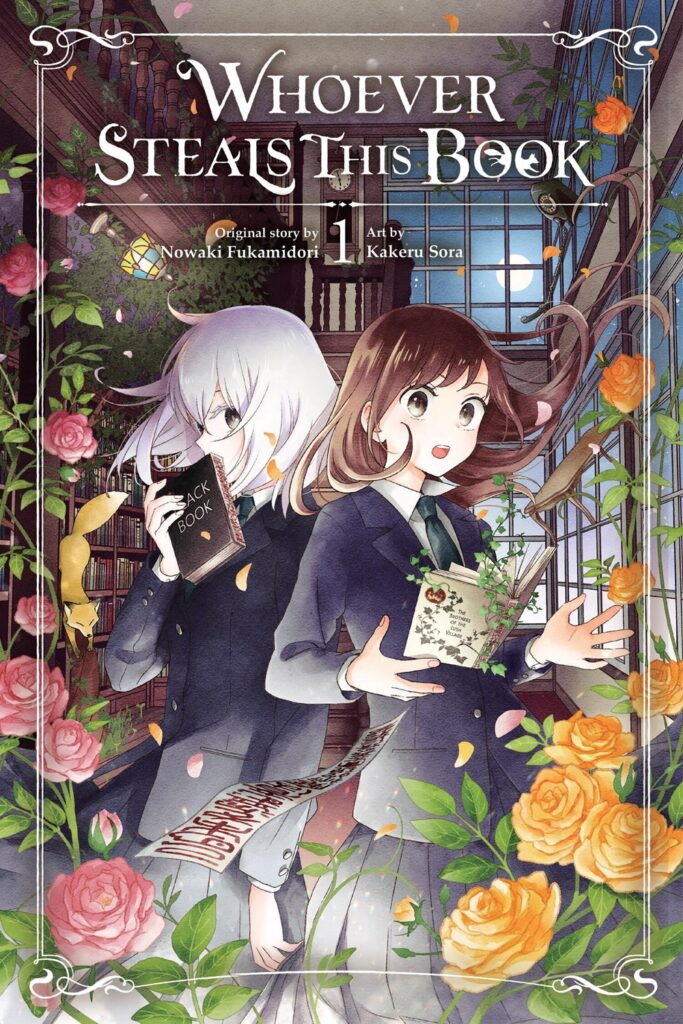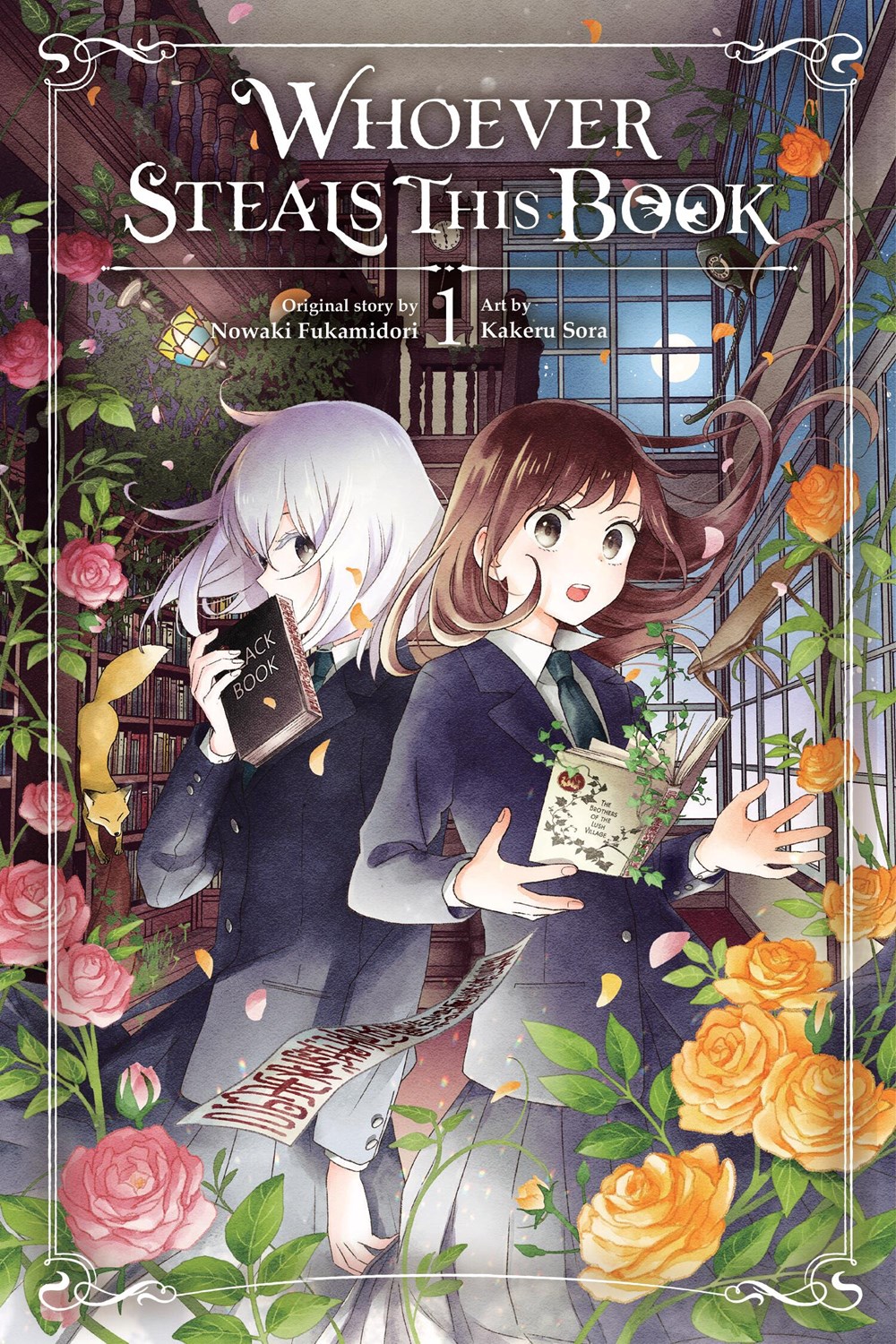Manga Review: Whoever Steals This Book #1 story by Nowaki Fukamidori, art by Kakeru Sora
Yomunaga is a town of books. This began with Mifuyu Mikura’s great-grandfather, a bibliophile and collector who founded Mikura Hall, a splendid private library. This drew other book-lovers to the vicinity and bookstores to serve them. His daughter kept up the tradition, initially, but grew discouraged and paranoid because of thefts from the hall. So, shortly before Mifuyu was born, Mikura Hall was closed to the public.

Due to some bad experiences with adults critiquing her reading habits as a child, and people trying to exploit her to gain access to Mikura Hall, plus resentment at her family’s financial circumstances, Mifuyu has grown up hating books. She doesn’t read for pleasure, and outside school, not for information. And now is a particularly bad time in her life. Her widowed martial artist father has been hospitalized, so the dojo isn’t bringing in any money, and her neurodivergent aunt Hirune basically lives in Mikura Hall and can’t handle things like shopping for food or clothes by herself, living only for the books.
Mifuyu brings a meal to her aunt, only to find her asleep and un-awakeable, with an odd piece of paper in her hand. It’s a talisman reading “whoever steals this book shall be chased by the flags of magical realism.” There’s a breeze in the sealed room, and a girl in Mifuyu’s school uniform but with pure white hair appears.
This girl is Mashiro, and she says that a book has been stolen from the library, which has triggered a transformation of the town to trap the thief. She insists that the only way to undo the transformation and catch the thief is to read another book, “The Brothers of the Lush Village.” And as she reads, Mifuyu finds herself inside the world of the story….
This manga is based on a serialized web novel. The basic notion of “child enters the stories of books to rekindle a love of reading” is one I’ve seen multiple times before, but usually with public domain literature. This one uses “original” stories, perhaps the author’s less successful drafts.
The first book has a tragic ending with the village destroyed and everyone dead, so there’s a time element that makes catching the thief and getting out of the story a priority. Mashiro, who may be a “reflection” of Mifuyu and/or a magical spirit that protects the books of Mikura Hall, can turn into a dog whenever that’s convenient. Mifuyu uses logic to solve the riddle as she grasps the rules of the world of the story.
A week or so later, Mifuyu sees her aunt outside for once, talking to a stranger to the village and seemingly happy to do so, but is too shy to find out what’s going on. The next day when she arrives, Aunt Hirune is asleep again, with another talisman. (Mifuyu had started to think that was just a dream.) Mashiro appears again, and urges her to read “Black Book”, a noirish detective story set in a dystopian city where the printed word is outlawed.
Despite my own bibliophilia, I find Mifuyu a sympathetic character. She’s had too much responsibility thrust on her for her age, the adults in her family are unreliable, and she’s been taught by experience not to trust outside adults. She doesn’t share interests with most of her peers, so doesn’t have friends, and has no one reliable to ask for advice or support. It’s clear from context that the other villagers would be willing to help out, if she’d only ask, but that requires a level of trust she just doesn’t have and understanding what exactly to ask for.
Book theft is apparently a real problem in Yomunaga even aside from Mikura Hall, as we see a bookstore owner fretting about shoplifting making it difficult to meet payroll.
The art is nice but feels a bit generic.
I’m hoping that the next volume will allow Mifuyu to actually have a conversation with her aunt, as a lot of answers and characterization are obviously locked up there.
So far, it looks like there’s not going to be a romantic subplot–Mashiro reads much more like a long-lost sister than a romantic interest, and Mifuyu’s got other issues that are more important to her. One of the minor characters is interested in a woman, but this is so he can be slotted into a role in the book’s story.
This young adult fantasy series will, I think, appeal most to teens who already enjoy reading. If it manages to stick the landing, I could easily see this being turned into an anime.

